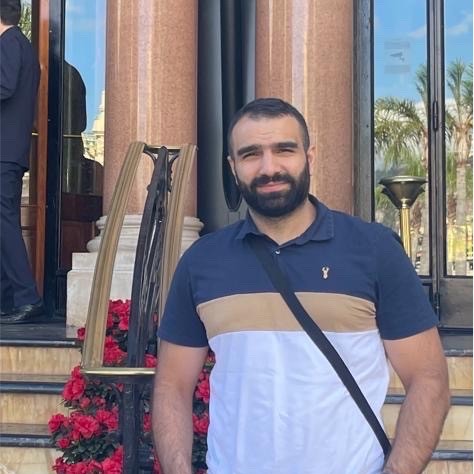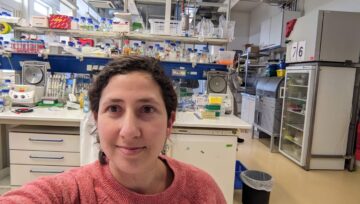SPOTLIGHT ON RESEARCH
PAPER OF THE MONTH JULY 2023
The Committee for Graduate Studies in the Faculty of Biology selects the leading scientific article each month from all the scientific articles published for that month.
We are pleased to announce that the winner of July’s article is Rawad Hanna from Dr. Kleifeld’s lab. The article was published in The Molecular & Cellular Proteomics.
On the occasion of the win, we asked Rawad to provide us with some interesting details about the study and the path that led to the research, and a bit about him.
Hi, could you introduce yourself in a few words?
I am Rawad Hanna, I am a direct track PhD student in the faculty of Biology. I’ve my finished my bachelor in biochemical engineering at faculty of Chemical Engineering, Technion.
Could you explain what Dr. Kleifeld’s laboratory is all about?
Our lab studies proteins in different systems by using proteomic methods. Proteins carry out a wide range of functions in the cell and their activity and localization can be altered by different post-translational modification. One of these modifications is proteolytic cleavage that is mediated by a large family of enzymes called proteases. Our main research tools based on mass spectrometry-based proteomics that allow us to identify and characterize thousands of proteins in a single experiment. We investigate various aspects of protein research including methods development, studying the role of specific protease, and different proteolysis-mediated processes.
Could you tell us about your current article/research what was the main purpose of the research and what did you discover?
The aim of this work was to develop a new proteomic method for studying protease activity. New methods are often needed in scientific disciplines, as existing methods may be insufficient for studying certain phenomena. We focused on programmed cell death (apoptosis), which is known to be dependent on proteases. Using our new method, we identified hundreds of previously unreported cleavage sites. We also demonstrated that some of these cleaved substrates undergo an additional modification called N-terminal acetylation (after the cleavage). This is the first report of post-translational N-terminal acetylation following proteolytic cleavage.
Can you elaborate on the importance of the discovery? How will it serve you and what directions does it take? What is the application of the discovery (domains, solutions)?
Programmed cell death is a critical process in the development of living organisms. The findings of this article have enabled us to gain a deeper understanding of this process. In biology, it is important to have a deep understanding of different processes, as this allows us to manipulate them to advance biotechnology and medicine. The ability to manipulate cell life and death could have significant applications in the treatment of diseases such as cancer and neurodegenerative diseases.
What drew you to the current lab/project?
The main motivation that drew me to this research and kept me going was the interesting challenges I encountered along the way. The combination of biology, chemistry, and bioinformatics made it possible to collect large datasets of several thousand proteins in a single experiment. This is always exciting to me, especially when I get new results.
When you are not “doing” science, what do you do?
Spend time with my family, drawing a bit, or traveling.
When you grow up who do you want to be?
Somebody that is always learning and discovering new things.
what are your plans for the future of your career?
The plans are that I will continue to pursue science and learning new things every day! There are more than a thousand topics that I want to explore, though it seems I’ll only be able to focus on one or two of them in a lifetime. My aspiration is also to inspire other people through the enjoyment of the discovery process in the field of science.
➡ Click here to read the full article









